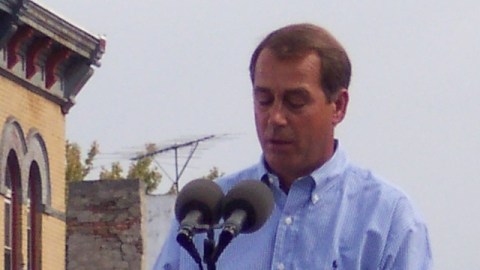Will a Divided Congress Be Good for Business?

Americans want change. The Republican victors in Tuesday’s election can certainly say they have a mandate to do what they said they would do. But it’s not at all clear that American voters as a whole were voting for any particular policy. As John Sides shows, the main thing that determined whether Democratic incumbents won reelection was not any specific position they took, but simply whether they were in a relatively conservative district. In other words, Democrats lost most of the marginal districts they won in 2008.
The one group that went over to Republicans in large numbers was the around 40% of Americans who say their financial situation has gotten worse. Exit polls showed that more than 60% of voters said the economy was the most important issue facing the country. Marginal districts swung back to Republicans not because of any specific thing Democratic incumbents did, but because whatever they were doing failed to fix the economy. In other words, American voters are not ready to give Democratic incumbents more time, but are ready to try something new.
That impulse may backfire. As I’ve argued, the main result of this election will probably be gridlock in Congress. Regardless of whether Republicans or Democrats have a better economic plan, a divided government may be the worst possible outcome for businesses. As Annie Lowrey explains, stock markets typically respond initially well to news that the houses of Congress will be controlled by different parties, on the theory that the more dysfunctional Congress is, the less it will interfere in markets. For a period under President Reagan a divided Congress able to get unemployment down and the economy growing again. But the stock market always seems to underperform when Congress is split. On average since WWII the S&P rose just 3.5% a year under divided Congresses, compared to an average of about 9% in other years. Go back to the beginning of the 20th century and the difference is even starker. That might be because we are more likely to get a split Congress when business is bad, rather than because Congressional gridlock is actually bad for business. But either way, it’s not a reason for optimism.





